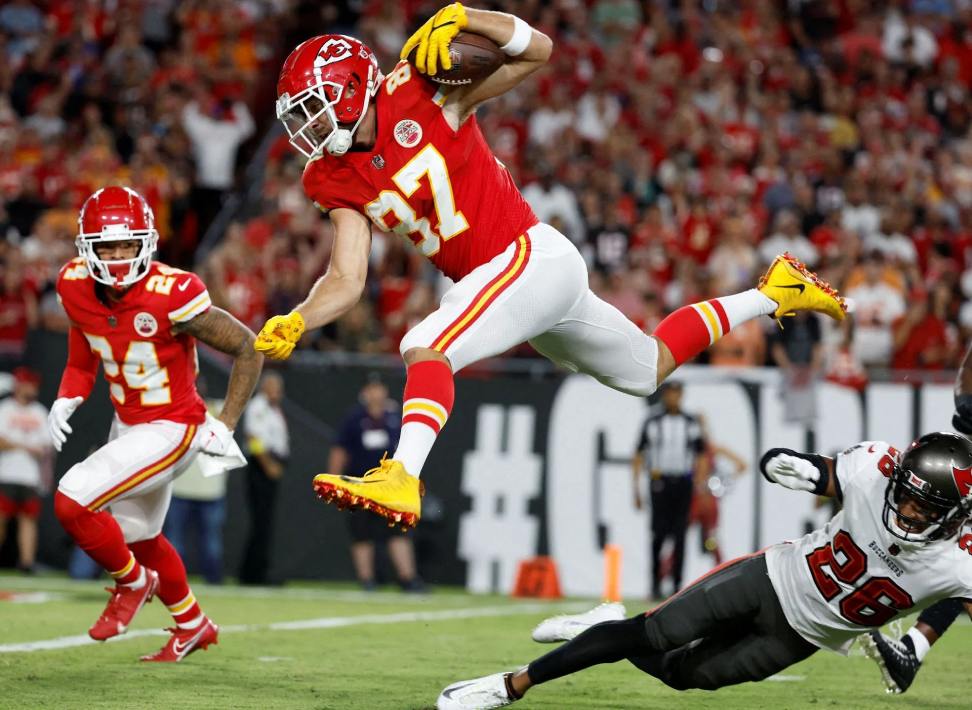The thrill of the pigskin soaring through the air, the roar of the crowd after a touchdown, the nail-biting tension in the final seconds – football ignites a passion like no other sport. But amidst the cheers and adrenaline, a question often pops up for new fans or casual viewers: how long is a football game?
The answer, like many things in football, isn’t as simple as it seems. Buckle up, as we delve into the complexities of time in the gridiron world:
Officially, It’s 60 Minutes, But…
On paper, a football game, whether professional or collegiate, consists of four quarters, each lasting 15 minutes. This translates to a neat and tidy 60 minutes of total game time. Sounds straightforward, right? Not quite.
The Clock Doesn’t Stop for Drama (or Injuries)
Here’s the catch: the clock in football only stops under specific circumstances, like incomplete passes, timeouts, and scoring plays. The clock also resumes after penalties, even if they negate the play. This means that stoppages for injuries, huddles, and reviews eat into the allotted 60 minutes, significantly extending the actual game duration.
Halftime: A Brief Respite
The 15-minute halftime provides a welcome break for players and spectators alike. However, it’s not included in the official game time. So, while the clock resets for the second half, the 15 minutes add to the overall viewing experience.
The Reality: Expect 3+ Hours of Football Immersion
So, how long does a football game actually last? Buckle up, because the answer might surprise you. The average NFL game, with its longer commercial breaks and more frequent reviews, clocks in at a whopping 3 hours and 12 minutes. College games tend to be slightly longer, averaging around 3 hours and 24 minutes. This means that a seemingly “quick” Sunday afternoon game can easily eat into your evening plans.
Super Bowl: The Granddaddy of Long Games
The Super Bowl, the pinnacle of American football, presents a unique case. While the official game time remains the same, the extravagant halftime show adds a significant chunk of time to the broadcast. The average Super Bowl telecast stretches to around 3.5 hours, making it an epic commitment for die-hard fans.
Why Does Time Seem to Warp in Football?
Several factors contribute to the perception of time dilation in football:
- Stoppages and reviews: As mentioned earlier, the constant stop-and-start nature of the game disrupts the flow of time, making it feel longer than its actual duration.
- Commercial breaks: Especially in professional leagues, commercial breaks strategically placed at key moments can feel disruptive and extend the perceived length of the game.
- Tension and anticipation: The emotional rollercoaster of close games, dramatic comebacks, and nail-biting finishes heighten our awareness of time, making it feel like forever until the final whistle blows.
So, How Long Should You Plan For?
Knowing the factors that influence game duration, here’s a handy guide:
- NFL game: Block out 3.5 hours, especially for primetime and playoff games.
- College football: Allocate 3.25 hours, considering slightly longer games and potentially rowdier crowds.
- Super Bowl: Brace yourself for a 4-hour commitment, including pre-game shows, halftime extravaganza, and post-game analysis.
Beyond the Clock: Embracing the Experience
While understanding the time commitment is crucial, remember that football is more than just minutes on the clock. It’s an experience filled with camaraderie, strategic plays, and unexpected moments. So, settle in, grab your snacks, and enjoy the ride! After all, the true magic of football unfolds not just in the ticking seconds, but in the emotions, stories, and memories it creates.
Read Also:
- Gabby Agbonlahor
- The Enigma of Jeff Stelling’s Net Worth
- Julian Newman: More Than Just a Height?
- Unveiling The Mystery: How Many Soccer Games Are In A Season?

